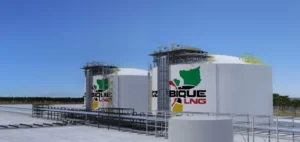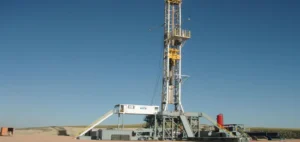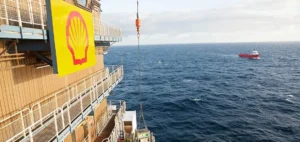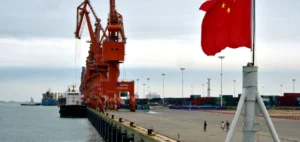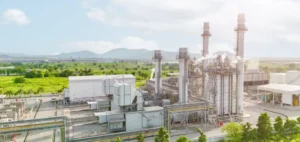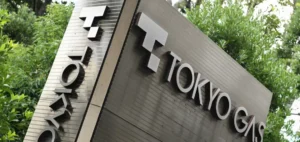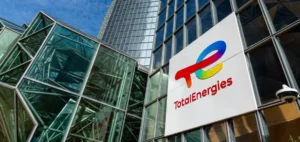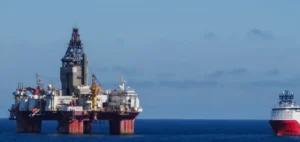ExxonMobil has officially lifted the force majeure clause on the Rovuma LNG project in Mozambique, paving the way for a final investment decision (FID) expected in 2025 or 2026. This restart positions the southern African country among the future key players in liquefied natural gas (LNG), in a context of strong global competition and ongoing security risks.
An 18 Mt/year onshore infrastructure in the Afungi zone
The Rovuma LNG project, located in Cabo Delgado province, plans to install two liquefaction trains with a total capacity of 18 Mt/year, on the Afungi site. This infrastructure is based on the exploitation of approximately 21.7 Tcf of gas reserved within the Area 4 block, estimated at 85 Tcf of total resources. The Area 4 consortium is led by ExxonMobil as the onshore operator, alongside Eni (25%, FLNG operator), China National Petroleum Corporation (20%), Korea Gas Corporation (10%), Abu Dhabi National Oil Company/XRG (10%) and Empresa Nacional de Hidrocarbonetos (10%).
In parallel, the neighbouring Mozambique LNG project, operated by TotalEnergies in Area 1, has also lifted its force majeure clause. With 13.1 Mt/year of capacity, it is now targeting a start-up in 2029, following cost overruns of more than $4.5bn over an initial $20bn budget. Additionally, the Coral Sul (3.4 Mt/year) and Coral North (3.6 Mt/year, FID planned for 2025) floating units complete Mozambique’s LNG ecosystem.
Military security outsourced to Rwanda
The revival of the Rovuma LNG project largely relies on the improved security framework around the Afungi site. Following the phased withdrawal of the Southern African Development Community’s (SADC) SAMIM mission, the Mozambican government signed a Status of Forces Agreement (SOFA) with Rwanda. This provides for the deployment of around 4,000 Rwandan troops between 2024 and 2026 to ensure permanent protection of the zone.
This legal framework offers reassurance to insurers, lenders and industrial partners of the project, as Cabo Delgado has been affected by an Islamist insurgency since 2017. The armed group Ahlu Sunnah Wal Jamaah, affiliated with the Islamic State organisation (ISIS-Mozambique), remains active in certain areas, although the intensity of attacks has decreased around gas sites since 2023. However, the risk of geographical displacement of the conflict remains.
A global environment of growing competition
The project’s relaunch comes amid rapid growth in global liquefaction capacity. According to the International Energy Agency (IEA), more than 300 bcm/year of new capacity is expected by 2030, primarily from the United States and Qatar. Rovuma LNG thus fits into a second wave, with a narrowed window to secure long-term financing and sales and purchase agreements (SPAs).
The project’s governance structure reflects a geopolitical balance between the United States, the European Union, the Middle East and Asia. Alongside TotalEnergies on Mozambique LNG and Eni on Coral South/North, ExxonMobil aims to reassert its presence with Rovuma LNG, while Asian buyers — notably in China, South Korea, Japan and India — are the primary target markets. The presence of CNPC and KOGAS in the consortium strengthens this focus.
Financial constraints and contractual adjustments
The lifting of the force majeure clause reactivates ExxonMobil’s contractual obligations, particularly regarding construction, delivery and financial reporting. The SPAs signed before 2021 remain in force but may be renegotiated in a market where LNG prices are stable around $11–12/MBtu in Asia (JKM index). Buyers currently benefit from oversupply and high storage levels, enhancing their bargaining power.
The project will likely rely on long-term oil-indexed contracts to achieve expected returns. Its overall cost remains high due to the onshore infrastructure, outsourced military security and rising ESG compliance demands. This situation reinforces the need for robust financial structuring and solid contractual guarantees.
Economic impact for Mozambique
The Mozambican government sees gas investments as a strategic lever for restoring macroeconomic stability. Current projections estimate potential cumulative state revenues at around $100bn if the projects reach full production. However, governance, value-sharing and cost control remain challenges, particularly after TotalEnergies announced significant budget overruns on Mozambique LNG.
The resumption of activity in Afungi is expected to stimulate local sectors such as construction, logistics and services. For this impact to be sustainable, authorities will need to strengthen local content mechanisms and ensure their effective enforcement in tenders and subcontracting contracts.
Impact on the global energy value chain
With the lifting of force majeure on Rovuma LNG, Mozambique could reach a total liquefaction capacity of around 35 Mt/year by 2030, combining Rovuma LNG, Mozambique LNG and Coral North. This would place the country among the world’s top ten LNG exporters. For companies across the value chain, this ramp-up implies increased demand for cryogenic equipment, compression units, EPC services and LNG carriers.
However, competition for industrial resources is intense. Projects in Qatar, the US and Canada already occupy a large share of global construction and engineering capacity, which could slow timelines and raise costs for Rovuma LNG. Lenders must factor in a significant margin of flexibility in their planning.
Governance and compliance requirements for investors
Ongoing legal actions related to Mozambique LNG have prompted export credit agencies and international banks to tighten due diligence requirements. In this context, Rovuma LNG partners must enhance transparency regarding security governance, community complaint management and the subcontracting chain.
ExxonMobil must also navigate the complexity of a multi-shareholder consortium involving partners from jurisdictions with different regulatory and political requirements. The ability to maintain unity in operational and financial decision-making will be critical to meeting the FID timeline and avoiding delays seen in other projects.












